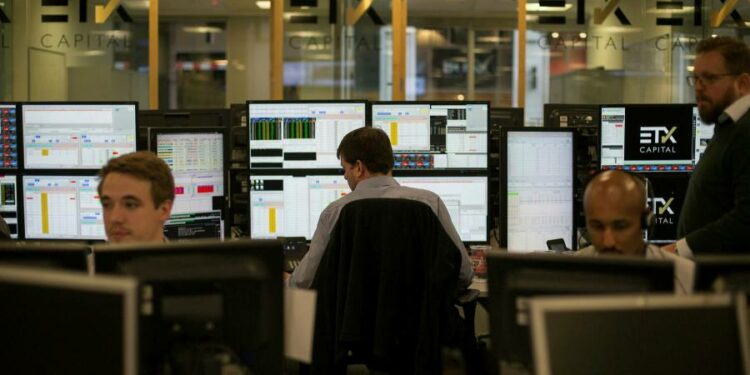Wall Street stock futures and US government bond prices picked up on Tuesday after a key element of the country’s latest inflation release came in lower than expected.
Stripping out price gains for volatile items such as food and energy left the “core” US consumer price index up 0.3 per cent month on month, lower than the 0.5 per cent forecast from economists polled by Reuters.
Meanwhile, headline consumer prices rose 8.5 per cent on an annual basis in March, up from 7.9 per cent in February, the Bureau of Labor Statistics said.
The lower core inflation reading will bring a measure of relief for investors, who feared an inflation overshoot would heap pressure on the US Federal Reserve to tame price growth by swiftly raising interest rates — the prospect of which has unsettled global markets in recent months.
The Fed last month lifted its benchmark interest rate a quarter of a percentage point to 0.5 per cent, the first increase since 2018.
US futures moved higher following the inflation print, with contracts tracking Wall Street’s S&P 500 adding 0.7 per cent and those tracking the technology-focused Nasdaq 100 rising 1.4 per cent.
In government debt markets, the yield on the 10-year US Treasury note, which underpins global borrowing costs, dropped 0.07 percentage point to 2.71 per cent. The yield on the policy-sensitive two-year note fell 0.08 percentage points to 2.43 per cent. Yields fall when prices rise.
The yield on the 10-year German Bund, a proxy for European borrowing costs, lost 0.03 percentage points to 0.78 per cent, remaining around its highest level since 2015. The yield on the government note stood at about minus 0.12 per cent at the beginning of the year.
German investor confidence, as measured by the Zew research institute’s economic sentiment index, fell to its lowest point since the first month of the coronavirus pandemic.
Elsewhere in equity markets, the European Stoxx 600 index declined 0.4 per cent, Germany’s Dax fell 0.8 per cent and France’s Cac 40 lost 0.5 per cent. London’s FTSE 100 fell 0.5 per cent. European bank stocks were among the worst performers, with shares in German lenders Deutsche Bank and Commerzbank both down about 8 per cent.
Andrew McCaffery, global chief investment officer at Fidelity International, said he was “particularly cautious” about European equities and the euro — down 0.1 per cent against the dollar on Tuesday — given the “likelihood” of recession.
The war in Ukraine would weigh on economic growth and stoke inflation, he added, leaving central bank policymakers and markets facing “an extremely complex picture”.
Oil prices, which fell on Monday, rebounded back above $100 a barrel on Tuesday. Brent crude, the international oil benchmark, rose 4.4 per cent to $102.8 a barrel.
In Asia, Hong Kong’s Hang Seng index closed up 0.5 per cent. China’s CSI 300 added 1.9 per cent. Japan’s Topix shed 1.4 per cent and South Korea’s Kospi declined 1 per cent.











